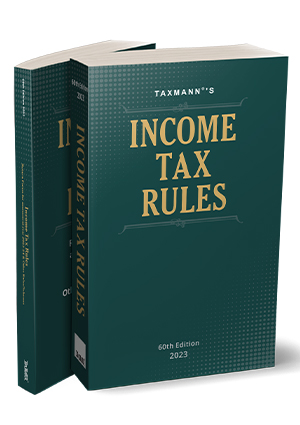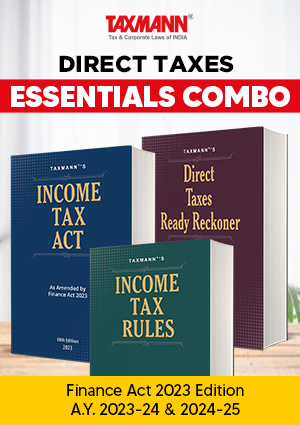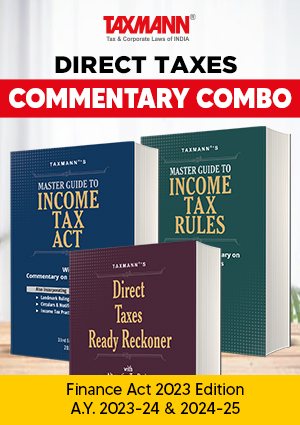Provision for Staff Welfare and Loss on Guarantee Is Ascertained Liability; Not to Be Added While Computing Book Profits | ITAT
- Blog|News|Income Tax|
- 2 Min Read
- By Taxmann
- |
- Last Updated on 3 July, 2024

Case Details: DCIT v. Tata Motors Ltd. - [2024] 164 taxmann.com 29 (Mumbai-Trib.)
Judiciary and Counsel Details
- Amit Shukla, Judicial Member & Ratnesh Nandan Sahay, Accountant Member
- Biswanath Das, CIT-DR for the Appellant.
- Rajan Vora, Nikhil Tiwari & Mihir Chitalia for the Respondent.
Facts of the Case
The assessee company manufactured chassis and vehicles for the transport of goods and passengers. It filed its return of income declaring nil income as per the normal provisions of the Act. During the assessment proceedings, the Assessing Officer adjusted the book profit under section 115JB for the provision of staff welfare expenses and loss on guarantee.
On appeal, the Commissioner (Appeals) deleted the adjustment made by the Assessing Officer, holding the same as ascertained liability. Aggrieved by the order, an appeal was filed to the Mumbai Tribunal.
ITAT Held
The Tribunal held that the provision for staff welfare expenses had been worked out on a scientific basis by accrual method and represented the provision for meeting ascertained liabilities. Therefore, no adjustment could be made to the book profit. There is no rebuttal that the provision has been made based on the accrual method, and consequently, it cannot be held that it is an unascertained liability. Accordingly, the observation and the finding of the CIT(A) were thus confirmed.
On the provision for loss on guarantee, it was held that the provision was a contractual liability based on the agreement, and the company had to account for the accrued liability. Accordingly, the issue was decided in favour of the assessee.
List of Cases Reviewed
- Tata Motors Finance Limited in ITA No. 4353/Mum./2013 dated 19-9-2018 (Mumbai ITAT)
- Tata Motors Finance Limited in ITA No. 7550/Mum/2016 dated 13-4-2022 (Mumbai ITAT) (para 34) followed.
List of Cases Referred to
- GKN Driveshafts (India) Ltd. v. ITO [2002] 125 Taxman 963/[2003] 259 ITR 19 (SC) (para 12)
- Apollo Tyres Ltd. v. CIT [2002] 122 Taxman 562/255 ITR 273 (SC) (para 21)
- Jt. CIT v. Usha Martine Industries Ltd. [2007] 104 ITD 249 (Kolkata) (para 21)
- NCL Industries Ltd. v. Jt. CIT [2004] 88 ITD 150 (Hyderabad) (para 21)
- Denish Industries Ltd. v. ITO [2004] 140 Taxman 456/271 ITR 340 (Gujarat) (para 22)
- Rallis India Ltd. v. Asstt. CIT [2010] 190 Taxman 1/323 ITR 54 (Bombay) (para 22)
- SGS India (P.) Ltd. v. Asstt. CIT [2007] 292 ITR 93 (Bombay) (para 22)
- Siemens Information System Ltd. v. Asstt. CIT [2008] 172 Taxman 315/[2007] 293 ITR 548 (Bombay) (para 22)
- CIT v. Echjay Forgings (P.) Ltd. [2001] 116 Taxman 322/251 ITR 15 (Bombay) (para 25).
Disclaimer: The content/information published on the website is only for general information of the user and shall not be construed as legal advice. While the Taxmann has exercised reasonable efforts to ensure the veracity of information/content published, Taxmann shall be under no liability in any manner whatsoever for incorrect information, if any.

Taxmann Publications has a dedicated in-house Research & Editorial Team. This team consists of a team of Chartered Accountants, Company Secretaries, and Lawyers. This team works under the guidance and supervision of editor-in-chief Mr Rakesh Bhargava.
The Research and Editorial Team is responsible for developing reliable and accurate content for the readers. The team follows the six-sigma approach to achieve the benchmark of zero error in its publications and research platforms. The team ensures that the following publication guidelines are thoroughly followed while developing the content:
- The statutory material is obtained only from the authorized and reliable sources
- All the latest developments in the judicial and legislative fields are covered
- Prepare the analytical write-ups on current, controversial, and important issues to help the readers to understand the concept and its implications
- Every content published by Taxmann is complete, accurate and lucid
- All evidence-based statements are supported with proper reference to Section, Circular No., Notification No. or citations
- The golden rules of grammar, style and consistency are thoroughly followed
- Font and size that’s easy to read and remain consistent across all imprint and digital publications are applied




